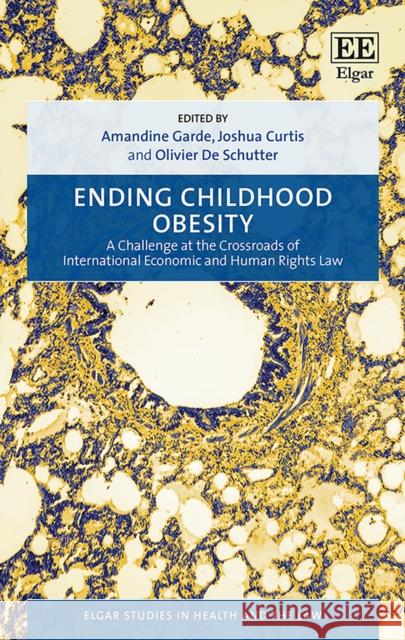Ending Childhood Obesity: A Challenge at the Crossroads of International Economic and Human Rights Law » książka
Ending Childhood Obesity: A Challenge at the Crossroads of International Economic and Human Rights Law
ISBN-13: 9781788114011 / Angielski / Twarda / 2020 / 400 str.
This edited book is the first to reflect on childhood obesity as a global legal challenge. It calls for a thorough commitment to human rights in the face of an ascendant global agri-food industry. The book makes an original contribution to the discussion on obesity as it considers both international economic law and human rights law perspectives on the issue whilst also examining the relationship between these two bodies of international law. After highlighting the importance of a human rights-based approach to obesity prevention, this book discusses the relevance of international economic law to the promotion of healthier food environments. It then examines the potential of international human rights law for more effective regulation of the food industry, arguing for better coordination between UN actors and more systematic reliance on human rights tools, including: the best interests of the child principle, human rights due diligence processes, and the imposition of extraterritorial obligations. The concluding chapter reflects on recurring themes and the added value of a WHO Framework Convention on Obesity Prevention. This book will be of interest to public health scholars, particularly those working on obesity and non-communicable diseases, and those with a broader interest in children's rights, human rights, international trade, investment, consumer or food law and policy. It will also be relevant to policy actors working to improve nutrition and public health globally.











